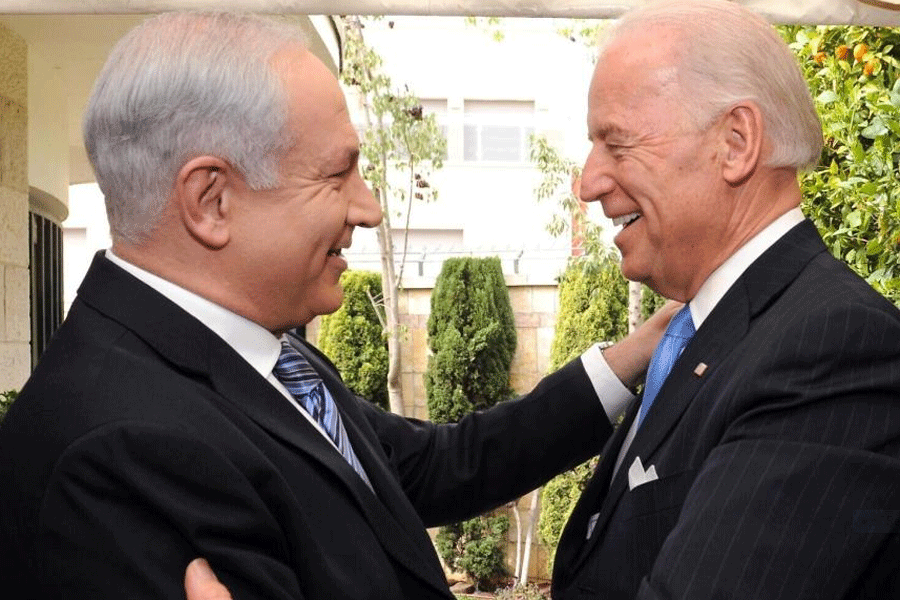President Joe Biden was getting ready to leave the White House for an audacious flight to Israel to demonstrate solidarity after Hamas’ October 7 terrorist attack when suddenly the trip seemed to be falling apart before it even began.
An explosion at a Gaza Strip hospital had reportedly killed or wounded hundreds, the Palestinians were blaming Israel, and Arab leaders were refusing to meet with Biden when he arrived in the region. The President summoned advisers to the Treaty Room on the second floor of the White House family quarters to answer the question: Should he still go?
A robust debate broke out between his national security and political advisers. Some in the room urged Biden to scrap the trip. It was not clear what could be accomplished. It might not even be safe. What if Hamas launched rockets at Ben-Gurion International Airport when Air Force One approached? Where would the President land then?
Others argued that he needed to go anyway. He had already announced the visit. They should not lurch from one decision to another. And preliminary US intelligence indicated that Israel was not responsible for the hospital explosion. Finally, Biden weighed in. “I’ve got to go,” he said. “I’ve got to see these guys face-to-face.”
That decision, perhaps more than any other, would come to define Biden’s approach to what has become the most divisive foreign policy crisis of his presidency. He had to go. He had to see them face-to-face. With that, he effectively took ownership of the war that would follow in all its overpowering brutality, managing it personally at great political risk to himself at home and abroad.
No other episode in the past half-century has tested the ties between the US and Israel in such an intense and consequential way. The complicated diplomacy between Washington and Jerusalem since Hamas terrorists killed 1,200 people and seized 240 hostages has played out across both governments, with indirect interactions between the leaders and intense back and forth between military and intelligence agencies.
The resolve of that dramatic presidential trip to Israel has given way to frustrating phone calls, sharp public comments and exhausting marathon meetings. The relationship has grown increasingly fraught as Biden has involved himself more intensely in the conflict than almost any other issue in three years in office.
Biden has seen growing internal resistance to his backing of Israel, including multiple dissent cables from state department diplomats. In November, more than 500 political appointees and staff members representing about 40 government agencies sent a letter to Biden protesting his support of Israel’s war in Gaza. Congressional Democrats have been pressing him to curb Israel’s assault.
The Biden team recognises that its challenge is not just Prime Minister Benjamin Netanyahu. But there is no serious discussion inside the administration of a meaningful change in policy, such as cutting off the arms supply to Israel. Instead, Biden remains determined to navigate the crisis within the crisis by using the credibility he earned through steadfast support of Israel to shape its next chapter.
New York Times News Service










